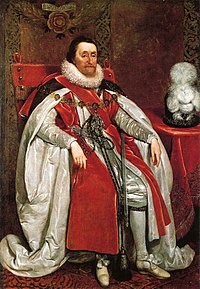 |
| Manuscript for Jonathan Edwards Sinners in the Hands of an Angry God |
There are so many great leaders down through the ages of church history. I picked ten leaders that I would recommend reading. These leaderships had an impact on the life of the church during their day and the communities that they lived in to the extent that their positive impact is still felt today. Each of these ten great leaders modeled, though imperfectly, the nine qualities that define great leaders as depicted in Jeff Iorg’s book “The Character of Leadership.”1
Irenaeus of Lyons was the consummate Pastor-Theologian of the early church. He was wholly dedicated as under-shepherd of the flock given to him and wholly dedicated to the theology of scripture refuting heresy.2
Athanasius of Alexandria modeled the quality of security. He was both pastor and theologian who trusted the Lord when the Roman world was against him. Athanasius spoke against heresy between two ecumenical councils; Nicaea and Constantinople, all the while holding to the doctrine of the trinity and divinity of Christ. He had what Jared Wilson calls the pastors justification, because he had convicted trust and not vague belief.3
Augustine of Hippo modeled the quality of purity. Sex was his besetting sin. He left it behind to follow Christ. He pastored the church in Northern Africa. He would become, through his writings, one of the greatest theologians in the history of the church.4
Anselm of Canterbury modeled the quality of humility. Anselm was significant in the development of scholasticism; that one should apply reason to faith, but he did not put his reasoning above his faith.5 His book Cur Deus Homo was significant in linking the atonement to the incarnation.6
Martin Luther modeled servanthood to his congregation in Wittenberg. He was Professor of Scripture at the university and at the same time he pastored the parish church, preaching three sermons a week.7 Luther’s fault in leadership was his tendency towards anger.
John Calvin modeled the character quality of gaining wisdom. This can be seen in the changes that he made over his life in The Institutes of Christian Religion. The character flaw that lead to his early departure was his unwillingness to rest. His hard pace of reading, writing and praying took a toll which resulted in illness and death in 1564.8
Jonathan Edwards was a leader who modeled discipline. Edwards made a list of seventy resolutions, “Never to do any manner of thing, whether in soul or body, less or more, but what tends to the glory of God.”9 The downside of Edwards was that in social situations he did not like small talk, but would rather talk on higher things, which made him appear to be unsociable.10
William Carey was a leader who modeled courage. He has been dubbed the father of the modern evangelical missions movement. Can you imagine the courage that it would take to be the first to leave the comforts of home, family, church and country, to go to a foreign land among the heathen?
Charles H. Spurgeon modeled sustaining passion. During his life, he battled depression, gout, and other maladies, but continued faithfully running to the cross in every sermon. It was the infinite love of God that drove him. In one of my favorite books, All of Grace, he describes faith as being made up of three things: knowledge, belief and trust.11 It is his faith that sustained his passion.
Carl F. H. Henry is a bit different than those previously mentioned, because he was not a pastor-theologian, he was a writer-theologian. He would launch the magazine Christianity Today. This magazine was designed to bridge the gap between academic theology and the theology of the evangelical Christian. Henry was aggressive in dealing with the issues of his day modeling the character of leadership.12
[1] Jeff Iorg, The Character of Leadership: Nine Qualities that Define Great Leaders (Nashville, TN: B& H Pub. Group, 2007).
[2] Justo L. González, The Story of Christianity (New York: HarperOne, 2010), 84.
[3] Jared C. Wilson, The Pastors Justification: Applying the Work of Christ in Your Life and Ministry (Wheaton, IL: Crossway, 2013), 149.
[4] Justo L. González, The Story of Christianity (New York: HarperOne, 2010), 241-252.
[5] Ibid, 369.
[6] Kevin J. Vanhoozer and Owen Strachan, The Pastor as Public Theologian: reclaiming a lost vision (Grand Rapids, MI: Baker Academic, 2015), 77.
[7] John D. Woodbridge, Church history the rise and growth of the church in its cultural, intellectual, and political context (Grand Rapids, MI: Zondervan, 2013), 109.
[8] Jason G. Duesing, Seven summits in church history (Nashville, TN: Rainer Publishing, 2016), 65-66.
[9] Ibid, 83.
[10] George M. Marsden, A short life of Jonathan Edwards (Grand Rapids, MI: Wm. B. Eerdmans, 2008), 142.
[11] C. H. Spurgeon, All of grace (New Kensington, PA: Whitaker House, 2003), 59.
[12] Jason G. Duesing, Seven summits in church history (Nashville, TN: Rainer Publishing, 2016), 111-114.






